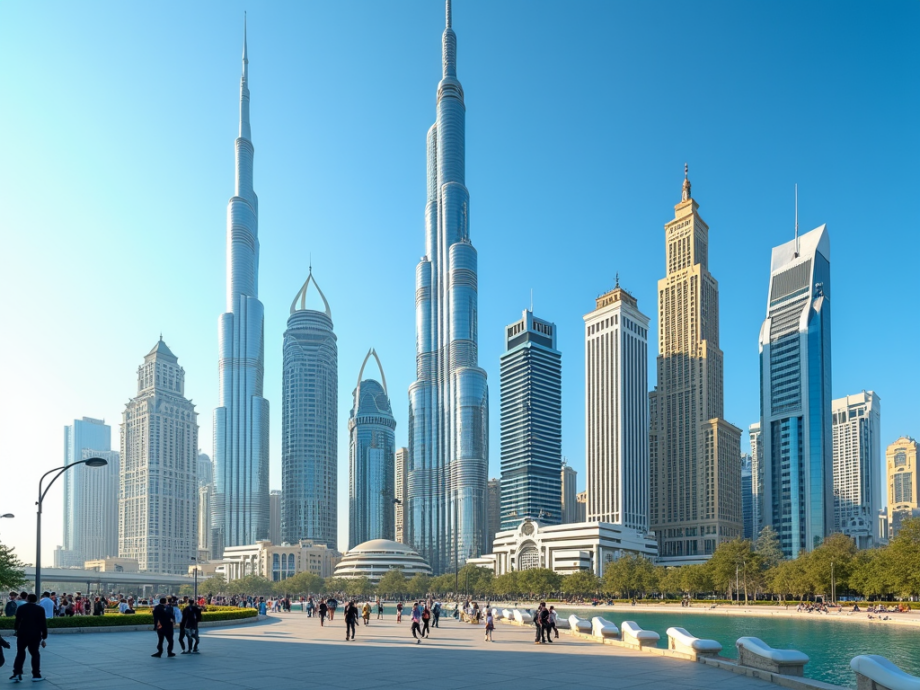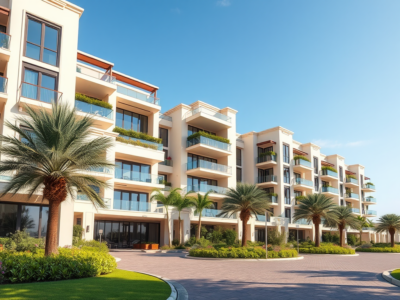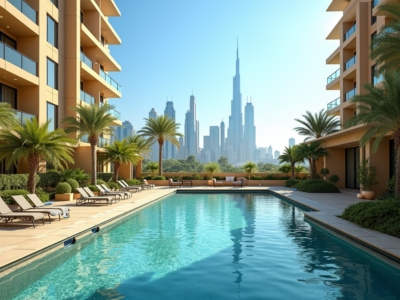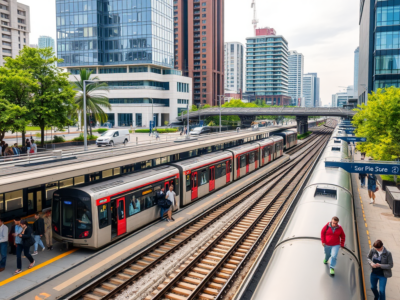Dubai’s rapid economic growth has significantly transformed its real estate market, fostering an environment of heightened investment, diversification, and remarkable development. By focusing on sectors such as tourism, technology, and financial services, Dubai has successfully created a robust economy that attracts local and international investors. This surge has heightened demand for residential, commercial, and luxury properties, leading to both challenges and opportunities in the real estate landscape. As we delve deeper into this connection, it becomes evident that the interplay between economic factors and real estate trends is vital for understanding Dubai’s housing market. This article explores the various dimensions of how Dubai’s economic elevation influences real estate, encapsulating key trends, investment opportunities, and potential future scenarios.
Economic Factors Driving Real Estate Growth

Several key economic factors play a pivotal role in shaping Dubai’s real estate market. These factors work in conjunction to create a dynamic environment that catalyzes property demand and investment. Here are some crucial components:
- Diversification of the Economy: The UAE’s strategic focus on diversifying away from oil dependence enhances stability and attractiveness for real estate investment.
- Global Events and Tourism: Major events like Expo 2020 bring international attention, fostering increased tourism and subsequently boosting demand for both residential and commercial properties.
- Infrastructure Development: Significant investments in infrastructure improve connectivity and accessibility, which raise property values across various regions.
- Business-Friendly Policies: Regulatory changes promoting foreign ownership and property rights attract more international investors.
- Population Growth and Urbanization: Continuous population growth enhances the need for housing solutions, further driving demand in the real estate sector.
Residential Real Estate Trends
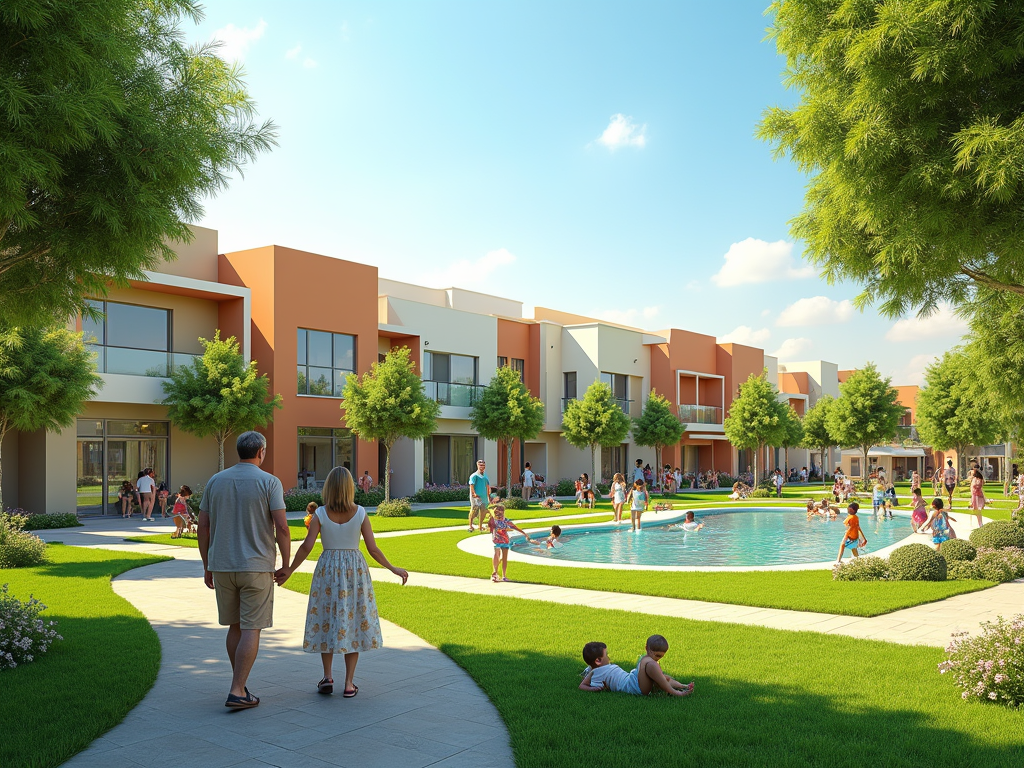
The residential real estate segment in Dubai has seen transformative growth, influenced heavily by economic dynamics. High demand for luxurious living environments has surged, prompting developers to innovate and create opulent properties. Some vital trends in this sector include:
- Luxury Apartments and Villas: There is a marked increase in high-end residential projects catering to affluent expatriates and local buyers, featuring amenities that prioritize comfort and exclusivity.
- Affordable Housing Initiatives: The government’s push for affordable housing has made strides in meeting the needs of middle-income families while also stimulating demand.
- Smart Home Technology: Integrating technology into residential units is becoming increasingly popular, promoting higher value and attracting tech-savvy buyers.
- Increased Rental Demand: With a growing expatriate population, the rental market remains robust, offering lucrative returns for investors.
- Community Developments: New residential communities are designed with a focus on lifestyle, enhancing the overall quality of living.
Commercial Real Estate Opportunities
Dubai’s economic expansion has opened up various commercial real estate opportunities, significantly impacting the overall landscape. The city continues to become a global business hub, attracting multinational corporations and startups alike. Here are some trends observed in commercial real estate:
- Office Space Demand: The rise in businesses moving to Dubai drives demand for flexible workspaces and premium office locations.
- Retail Expansion: As tourism continues to thrive, the retail sector sees significant growth, leading to the development of new shopping centers and commercial venues.
- Logistics and Warehousing: The boom in e-commerce increases the need for logistic facilities, thereby creating opportunities for warehousing developments.
- Coworking Spaces: Innovative office solutions like coworking spaces are designated to accommodate startups and freelancers, promoting community and collaboration.
- Smart Districts: Projects focusing on smart technology and sustainability are gaining traction, appealing to modern businesses with forward-thinking approaches.
Challenges in the Real Estate Market
Despite the booming real estate sector, Dubai faces specific challenges that stem from its economic landscape. Identifying and addressing these issues is crucial for a sustainable growth trajectory. The key challenges include:
- Market Saturation: With many new developments flooding the market, supply may outstrip demand, leading to potential price corrections.
- Regulatory Hurdles: Navigating complex regulations can be daunting for investors and developers alike, affecting the overall market perception.
- Fluctuating Oil Prices: As Dubai’s economy has some exposure to oil prices, any significant declines can impact investor confidence.
- Competition: Increasing competition among developers may lead to oversupply and diminished returns on investment.
- Global Economic Conditions: Fluctuations in the global economy can directly affect investor sentiments and market stability.
Conclusion
In summary, Dubai’s thriving economy plays a crucial role in shaping its real estate market. The interdependence is evident, as economic growth drives property demand and investment, while the real estate sector simultaneously contributes to the city’s financial prosperity. The trends and challenges outlined herein illustrate the complexity and dynamism of the market, emphasizing the importance of strategic planning for investors looking to capitalize on its potential. As Dubai continues to diversify and invite global investment, the real estate sector will likely adapt and evolve to meet new economic realities, ensuring its position as a formidable marketplace in the real estate domain.
Frequently Asked Questions
1. What factors are driving Dubai’s real estate growth?
The growth is primarily driven by economic diversification, global events like Expo 2020, infrastructure development, business-friendly policies, and an increasing population.
2. What types of properties are most in demand in Dubai?
There is high demand for luxury apartments and villas, affordable housing, smart home technology-integrated homes, and commercial spaces that cater to businesses.
3. Are there any challenges in Dubai’s real estate market?
Yes, challenges include market saturation, regulatory hurdles, fluctuating oil prices, increased competition, and the impact of global economic conditions.
4. How does tourism influence Dubai’s real estate market?
Tourism drives demand for both commercial and residential properties as it brings international attention and encourages the development of hospitality-related real estate.
5. What future trends can we expect in Dubai’s real estate market?
Future trends may include continued focus on sustainability, smart city developments, innovative living spaces, and diversification into emerging sectors driven by technological advancements.
